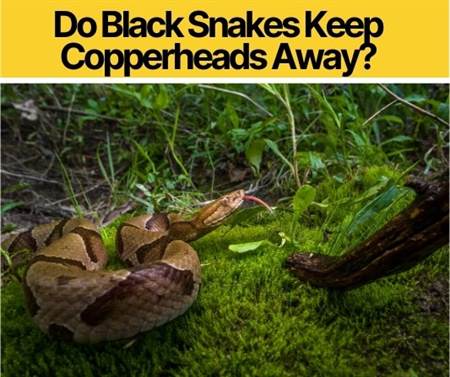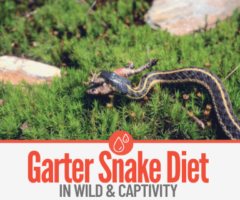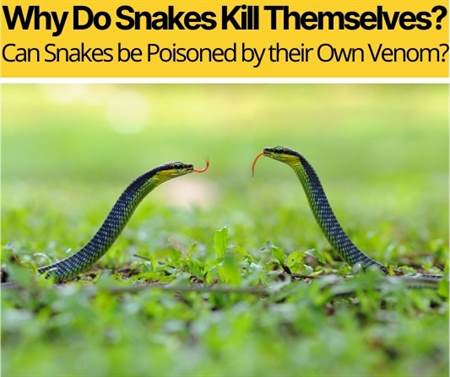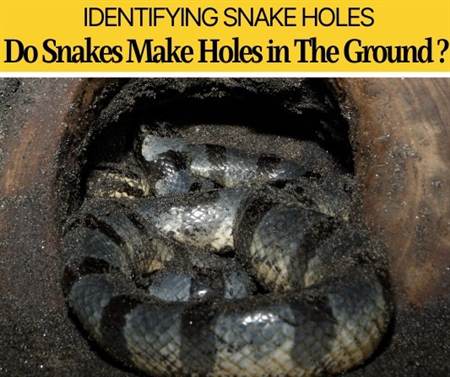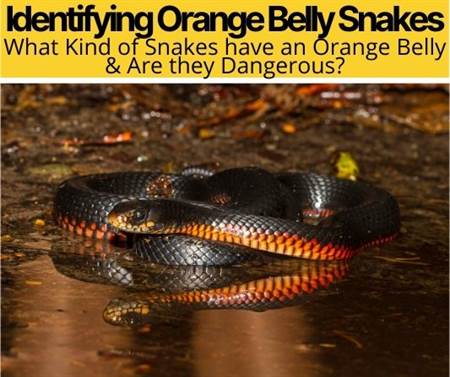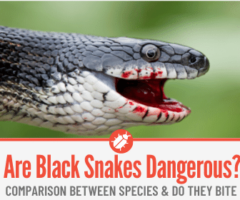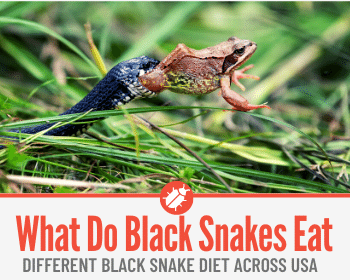 Black Snakes each have a diverse diet. What do Black Snake’s eat depends on their location, method of hunting, and natural abilities.
Black Snakes each have a diverse diet. What do Black Snake’s eat depends on their location, method of hunting, and natural abilities.
Even non-venomous snakes are carnivores and they can be fierce predators, too. For farm/pet owners, Black Snakes can seem threatening to their domestic or farm animals.
In this guide, you’ll see what a Black Snake’s diet consists of specifically.
Then, continue reading for helpful tips about keeping your favorite pet from becoming the meal of a Black Snake.
What Do Black Rat Snakes Eat
Black Rat Snakes are known to eat rodents, preferring rats, mice, moles, and chipmunks. Black Rat Snakes also enjoy eating birds, lizards, frogs, and chicken eggs.
Adults eat about once every three weeks. It takes Black Rat Snakes a few days to digest their meal.
Black Rat Snakes hunt by constricting. They strike by biting their prey initially, and then wrapping their body around their prey, cutting off the animal’s circulatory system until its death.
Sometimes Black Rat Snakes will perform several kills for one meal.
It’s easier for the snakes to make multiple kills while carrying the scent of their prey, so their attacks are unsuspected.
For this reason, the Black Rat Snake may indulge in several rodents for one meal sitting.
Related: Are Black Snakes Dangerous
Black Racer Snakes
The Black Racer Snake is just one subspecies of Racer Snakes living throughout North America. The Black Racer performs its hunting in the day in grassy areas.
Black Racer Snakes feed on insects, rats, mice, lizards, eggs, birds, small rodents, and amphibians.
Sometimes Black Racers will eat other snake species, but this isn’t too common. The Black Racer Snake certainly prefers other prey.
Despite the word “constrictor” being included in their scientific name, these snakes do not constrict their food. Instead, Black Racers eat prey alive, swallowing whole.
The Black Racer’s appetite is larger than most snakes. Their feeding habits are ideal for ridding your backyard of pesky rodents.
Black Mamba Snakes
Black Mamba Snakes are arboreal snakes that are strictly carnivorous, but they’re not picky about their meat. Mambas find lots of birds and bats to eat up in treetops and their prey’s shared micro-habitats.
It is thought that one reason Black Mamba Snakes evolved with such highly potent venom was in order to swiftly paralyze and kill birds since they most easily escape. These snakes will even cling to birds after their initial venomous bite to ensure capture.
For all other prey, the Black Mamba Snake strikes once with their bite, retreats, and waits patiently for the venom to sink in. The prey is paralyzed and eventually dies – then the Mamba Snake returns to feast on the body whole.
Other small prey that Black Mambas enjoy eating include rodents, lizards, bushbabies, hyraxes, and small chickens. Black Mambas are fearsome creatures that are also known to eat other snakes, like cobras.
One reason Black Mambas can feast on many animals is they can fit food in their mouth at least four times as large as their head. Mambas accomplish this by being able to dislocate their jaws.
Black Mambas are swift killers. They hunt prey day or night.
Black Kingsnakes
The word “king” in the Black Kingsnake’s name refers to the fact that they are known for eating other snakes.
Black Kingsnakes are resistant to the venom of pit-vipers. This means these Black snakes can eat copperheads, Rattlesnakes and cottonmouths with no trouble.
However, Black Kingsnakes enjoy other prey like lizards, birds, rodents, turtle eggs, and frogs.
The Black Kingsnake is a hunter and a constrictor. It actively seeks its prey utilizing scent, then strikes with a bite, and finally begins constricting its meal.
If the Black Kingsnake has a large meal, it won’t need to eat again for a while.
Black Kingsnakes are especially strong. It’s speculated that one reason for this may be that snakes can sustain lower blood oxygen levels longer than most prey, requiring more of an effort for the Black Kingsnake to constrict prey snakes.
Black Red Belly Snakes
Black Red-Bellied Snakes are venomous carnivores commonly found in Australia. It enjoys eating meat of many kinds – and it even eats snakes of its species!
This predacious Red-bellied Snake can hunt on land, in water, or even in trees, as it’s adaptable to aquatics and climbing.
When they hunt in the water, they may take their food up to land, or consume prey underwater.
Black Red-Bellied Snakes commonly enjoy eating frogs, tadpoles, and fish. When hunting in water, they can stay submerged for over twenty minutes.
Black Red-Bellied Snakes don’t need to eat often. Their red bellies can stay satisfied with food for a couple of weeks.
Black Swamp Snakes
The aquatic Black Swamp Snake enjoys hunting amongst underwater vegetation, and often finds their favorite meals to eat there like tadpoles, frogs, and small fish.
Swamp Snakes’ diets live up to their name with their preference for salamanders, larval, and leeches. Black Swamp Snakes also feed on worms and invertebrates.
Black Swamp Snakes can survive dry spells and draughts better than some other watersnakes.
One way Black Swamp Snakes survive such conditions is by feeding during pregnancy, an uncommon practice in snakes, and directly feeding their unborn young by a method called income breeding.
What do Baby Black Snakes Eat?
Baby Black Snakes must regularly eat food that appropriately fits in their mouths.
Depending on the breed, Baby Black Snakes may often enjoy eating worms, small fish, baby birds, and eggs. They also eat appropriately sized rodents.
Pinkie mice are common for Baby Black Snakes to eat. Many pet shops sell them to accommodate snake keepers.
How Do You Feed Baby Black Snakes?
Baby Snakes can safely be fed “pinkie mice”, which are available at most pet shops.
“Pinkie” mice refer to the tiny, hairless, baby mice that have been bred as snake food. As your young snake gets older and bigger, you can gradually increase the size of the mice that you feed your Baby Snake.
Juvenile Black Snakes will enjoy eating twice a week, more frequently than adults, but don’t worry if their appetite is lower around shedding time.
One way to accomplish feeding a finicky Baby Snake is to scent the feeding pinkies with salmon. By rubbing the Baby Snake’s food with fresh raw fish, the snake’s appetite will be triggered and they’ll eat successfully.
It’s important to give your Baby Black Snake space after feeding time, allowing it to digest before you handle it again. Uneaten food should be discarded.
If you’re concerned for your fingers when feeding your snake, try a separate feeding area from their general enclosure.
If you prefer to keep only one container available for the snake, you may just drop food into its cage.
You may also use tongs to move the Baby Black Snake’s “prey” around to replicate hunting activity for your snake.
Do Black Snakes Eat Birds?
Many Black Snakes eat birds. It’s estimated that snakes prey upon a fourth of birds’ nests, on average.
This largely depends on snake species and location. Black Rat Snakes are one of a birds’ nest’s main predators.
Black Snakes will also feed on birds’ eggs. Some species of Black Snakes can and will climb trees to feast upon birds and eggs for their meal, like the Black Red-Bellied Snake.
Snakes can also climb into a birds’ nesting box. This is important to keep in mind if you live in a common habitat of Black Snakes.
Do Black Snakes Eat Rabbits?
Among the many rodents that snakes feed on are rabbits.
Smaller snakes might indulge in young rabbits, but a large predacious snake, like a Black Racer, might eat an adult rabbit whole.
As obligate carnivores, snakes rely on meat to survive, and so they’ll obtain it any way possible.
Unfortunately, this includes sneaking into where they shouldn’t be! If you own rabbits keep in mind they may not be safe from Black Snakes depending on your location.
How to Protect your Rabbits from Black Snakes
Size is important when it comes to snakes eating rabbits.
If you own adult rabbits, they are safe from Black Snakes that are under six feet long.
Still, if you own smaller or younger rabbits, or if you live in an area with large Black Snakes, you may be justified in your concern for your pet bunnies.
Black Snakes of at least two feet can eat newborn baby bunnies, and snakes of at least four feet can eat young bunnies. However, snakes must be around six feet long or longer to accomplish eating adult rabbits.
Some Snakes that hunt rabbits are:
- Black Rat Snakes
- Southern Black Racers
- Black Kingsnakes
- Rattlesnakes
- Pythons
In areas where Black Snakes are common, consider keeping your rabbits protected indoors, as rabbits kept outdoors may become prey. Another option is to keep rabbits outdoors only in daylight.
Otherwise, consider keeping baby and younger bunnies indoors at nighttime, as they are especially in danger of becoming a Black Snake’s prey.
Rabbits can simply panic themselves to death in the presence of Black Snakes. Rabbits have accidentally killed themselves in their cage, and even their own young, literally scared to death of an offenseless snake encounter.
Remember though, there are plenty of rabbits that encounter snakes in the wild. Feral rabbits are cunning and they can escape or bluff their way out of a snake attack.
If you don’t want to take the risk that your pet rabbit will have to rely on his inner feral instincts, there are some snake-proofing precautions you can take:
- Build your rabbits a hutch that you have easy access to. Off the ground, build the floor as a wood base with a fashioned catch-all tray for best results. Ensure openings stay closed and snake-proof.
- Always clean up after your rabbits on a regular basis to deter snakes.
- Apply non-toxic snake repellent.
- Keep surrounding areas tidy to discourage Black Snakes from finding a hiding spot.
Do Black Snakes Eat Cats?
Snakes and cats are natural enemies. They’re both carnivorous predators that consume a very similar diet, and they are both cunning hunters.
While cats and Black Snakes don’t consider the other a natural meal, both animals are known to kill and eat the other. So while your cat probably won’t get eaten by a Black Snake, considering the cat’s safety is still important.
Consider the size of your cat and nearby snakes to determine your feline friend’s safety. A cat can easily catch and kill a snake less than six feet long.
Smaller snakes won’t harm your cat more than a bite. Fully matured Black Rat Snakes or Black Racer Snakes, however, could seriously injure, or even kill your cat and eat it.
Always keep your cat away from venomous snake species. Additionally, deter your cats from investigating dead snakes, as some can still snap their jaws hours after death out of reflex.
Kittens
Kittens are at higher risk of being attacked by a snake than a fully grown cat.
While a snake might only strike or seek to injure a cat, it may want to eat a small kitten.
Kittens mature rather slowly and don’t always have comparable reflexes or hunting skills that cats are equipped with.
Even defense mechanisms like tree climbing are still new to kittens, so it’s best to keep them completely out of a Black Snake’s reach.
How to Protect your Cat from Black Snakes
It’s crucial to keep commonly seen large Black Snakes like the Black Racer Snake or Black Rat Snake away from your pet cats. Some precautions you can take would be to:
- Make sure your lawn stays clean and cut to eliminate hiding spaces for snakes.
- Always clean up cat food that’s left outdoors.
- Use non-toxic snake repellent to help keep Black Snakes away.
- Sprinkle some vinegar around your yard or garden. This deters snakes.
- Protect your yard or the area the cat roams in outdoors. Install mesh netting or consider building a hutch, fence, or other enclosure for your cat.
- Keep rodents away from your yard to keep a snake from encountering your cat, who might be after the same prey.
Do Black Snakes Eat Cat Food?
While snakes don’t eat cat food, they eat rodents and other pests that may invade a cat’s food bowl.
Your cat’s safety must bring their food indoors, even from the garage.
The cat food could be inviting in rodents, and that will also encourage a visit from a Black Snake.
Do Black Snakes Eat Fish
Black Garter Snakes will certainly sneak into your pond for a meal of fish. However, two very common black snakes, Black Rat Snakes, and Black Racer Snakes do not eat fish.
Other black snakes, like the Black Swamp Snake and Black Red-Bellied Snake, feel comfortable in the water. Therefore, fish is part of their regular diet.
Some black snakes, like the Black Kingsnake, are not known for eating fish but do eat other semi-aquatic life, like frogs.
Do Black Snakes Eat Rats
The Black Snake most known for eating rats is the Black Rat Snake. These snakes are excellent for keeping rats out of your area, even river rats.
While the Black Rat Snake is effective at catching rats and certainly is most known for it, other black snake species also enjoy eating rats.
Black Kingsnakes, Black Racer snakes, Black Red-bellied snakes, and Black Mamba snakes all frequently hunt rats.
Do Black Snakes Eat Chickens
Again, The Black Rat Snake is well-known for eating chickens, since they are commonly found in human-inhabited areas. This is especially true for rural and suburban areas, where chicks and chickens are easily found food for Black Rat Snakes.
Many snake species also feed on chicks and chickens, and even their eggs. All of the black snakes on this list would potentially eat chickens, or at least their eggs or chicks.
If black snakes live in your area your chickens could be at risk.
How to Protect your Chickens from Black Snakes
A snake can make its way through most spaces half an inch or wider. Luckily, there are many steps you can take to keep your chickens safe from the harm of black snakes:
- Pick up your chicken’s eggs regularly.
- Keep rodents away from your chicken coop.
- Keep the area surrounding the coop clean to eliminate snake hiding spots.
- Use hardwire cloth if your coop has a run.
- Use chicken wire if your coop does not have a run.
- Raise the floor of the chicken coop.
- Connect a coop apron to the bottom of your chicken coop.
- Use herbs that naturally repel snakes such as rosemary, thyme, snakeroot, marigold, garlic, onion, and lemongrass.
- Use non-toxic snake repellent.
- Eliminate all gaps and openings that you believe a snake could fit through.
- Keep a humane minnow trap with an egg inside it to bait and trap the snake. Then, release caught snakes. You can even drive them a safe distance out, and drop them off in their natural habitat, far from your chickens.
There’s a lot to consider when setting up a snake-proof chicken coop, and it may be a continual work of progress. Here are some disclaimers:
- Be wary of using mothballs. Mothballs aren’t proven to repel snakes, and they are toxic to your chickens.
- Avoid golf balls, too. Snakes smell with their tongue, and they’ll notice the golf ball is not an egg before they’ve swallowed it. Then, they’ll likely move on to eating your real chicken eggs.
- Avoid bird netting traps.
- Guinea fowl or large cats can help keep snakes away from your chickens. Just make sure the aiding animals and the chickens get along!
- If you use snake repellent, don’t skip taking other precautions. Snake repellents aren’t effective 100% of the time. It’s best to take a few of these steps to ensure your chickens are safe.
Do Black Snakes Eat Rattlesnakes
Depending on the type of black snake, they may attack or even kill a Rattlesnake, though not all black snakes on this list will.
Black Racer Snakes are known on occasion to kill and eat juvenile rattlesnakes.
Black Rat Snakes won’t usually harm or try to eat rattlesnakes, though the occurrence has been caught on camera. This is rare, though.
Yet, interestingly, it’s possible to catch Black Rat Snakes and Rattlesnakes together in hibernation.
Black Kingsnakes regularly enjoy rattlesnakes for a meal. Rattlesnakes have a special defense against them called “body bridging” where their middle portion raises, attempting to be too difficult for the Kingsnake to eat.
How Do Black Snakes Kill Their Prey?
Black Rat Snakes kill their prey using constriction. They strike first, biting their victim, and then proceed to wrap themselves around the prey before swallowing it whole.
Also using constriction to trap and eat their prey are Black Kingsnakes and Black Racer Snakes.
However, the venomous Black Red-bellied snake will strike its prey with its two poison-inducing front fangs. Then, they will eat their prey whole.
Black Mambas go about feeding differently. They also strike with venomous fangs, only to release their prey as they wait for it to become paralyzed; then they feast!
Black Snake Diet In Different States
What do black snakes eat will mostly depend on where they are located and what prey is available on them, in this section we will cover what do black snakes eat in states where black snakes are found the most.
Florida Black Snake Diet
Commonly found in Florida are Black Racer Snakes, Black Rat Snakes, Black Swamp Snake, Black Red-bellied Snake, and Black Pine Snake.
All of these snakes in florida frequently eat frogs, lizards, mice, rats, and birds’ eggs. Some snakes, like the Black Racer and Black Rat Snakes, will eat chickens as well.
Black Swamp snakes might prefer underwater catches such as tadpoles or fish. Black Red-Bellied Snakes will eat a large variety of prey, including other snakes, and even sometimes their species.
North Carolina Black Snake Diet
Black Snakes found in North Carolina include Black Racer Snakes, Black Rat Snakes, Black Red-Bellied Snakes, Black Kingsnakes, Black Mud Snakes, Coachwhips, and Black Ring Necked snakes.
All of these species have a large variety in their diet. Most, especially Black Rat Snakes in North Carolina will commonly eat rats, mice, lizards, frogs, and eggs.
Black Ring Necked Snakes may prefer salamanders, slugs, or earthworms. Other species, like the Black Kingsnake or Black Red-bellied snake, will even eat other snakes.
Mud Snakes feed mainly on large salamanders, though they also have a variety in their diet and feed on smaller animals like tadpoles, too.
Virginia Black Snake Diet
The most common black snakes in Virginia are the Black Racer Snake and the Black Rat Snake.
The Black Rat and Black Racer snakes in Virginia generally eat insects, rats, mice, lizards, eggs, birds, small rodents, and amphibians.
Ring Necked Snakes and Mud Snakes also live in Virginia and both enjoy salamanders in their diet. Though, the Black Ring Necked Snake may also eat slugs, earthworms, and other earthy creatures.
Black Kingsnakes are also found in Virginia and they eat all of the above as well, as well as other snakes, for which the Kingsnake is named.
Pennsylvania Black Snake Diet
The Black Rat Snake is the most common snake found in Pennsylvania. Commonly feeding on rats, mice, other vermin, lizards, eggs, and birds, this is an excellent snake to have around for keeping pests away.
Faster Black Racers are also in Pennsylvania, and they enjoy a similar diet to that of the Black Rat Snake.
Northern Black Ring Necked Snakes also reside in Pennsylvania. They prefer to eat salamanders and slugs, but will also eat lizards and frogs.
Ohio Black Snake Diet
The Black Rat Snake is the largest living snake in Ohio. In Ohio Black snakes feeds on rats, mice, lizards, birds, and eggs.
As Ohio’s land becomes more inland West and northern, snakes are less common to see. However, it’s easy to see the wide range of habitats that Black Rat Snakes inhabit.
Conclusion
As you can see, the diet of a Black Snake is diverse and largely dependant on their location and natural skills.
Although snakes can be scary to look at, remember that common Black Rat Snakes and Black Racer Snakes are beneficial to your garden and the habitat by controlling local rodent populations.
Even if you encounter a particularly threatening snake, restrain from killing it! It’s illegal and generally not necessary.

